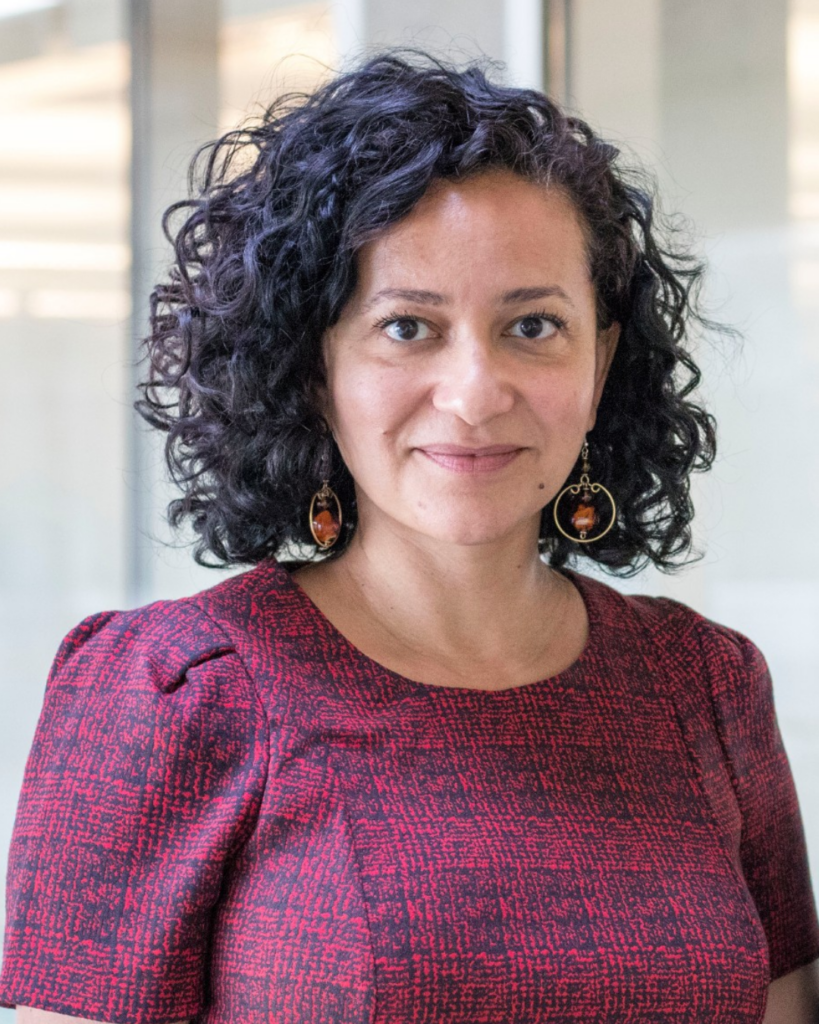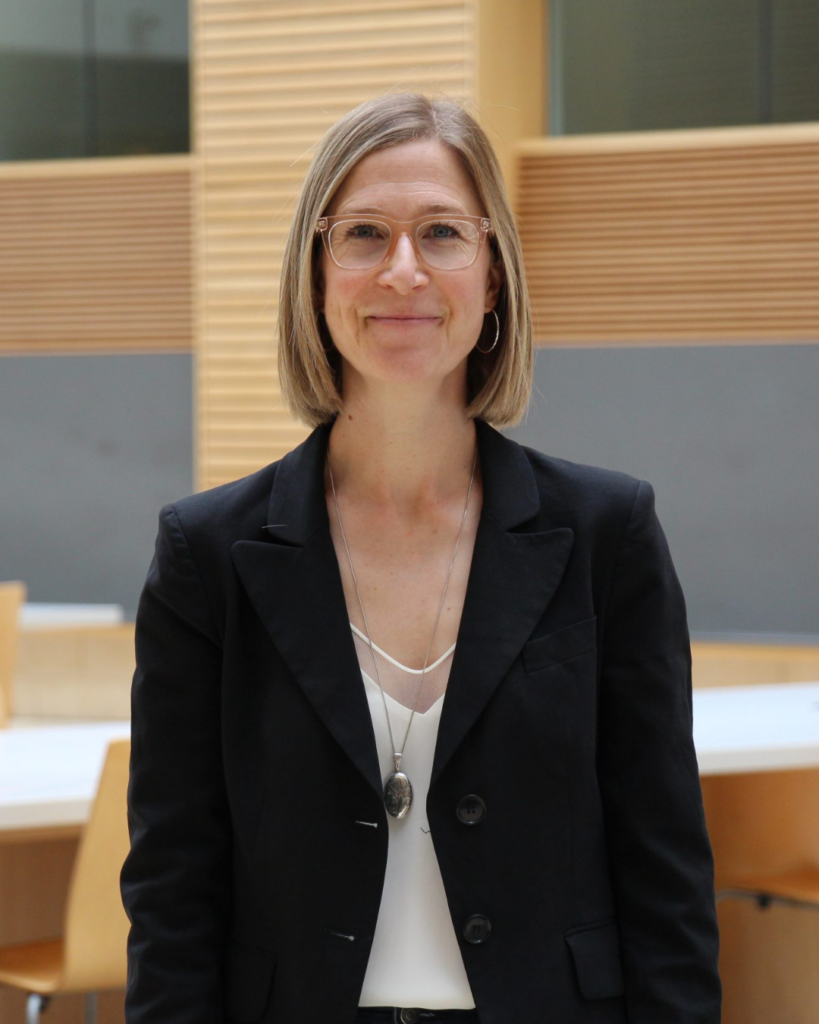WHRI Executive

Dr. Lori A. Brotto | Executive Director
PhD, R Psych
Dr. Lori Brotto is a renowned figure in the field of women’s sexual health. As a Professor in the UBC Department of Obstetrics and Gynaecology, she holds a Canada Research Chair, focusing on developing safe and accessible treatments for prevalent sexual concerns in women. Driven by a commitment to equity, she champions the use of digital health technologies to broaden access to these treatments.
Dr. Brotto also serves as the Executive Director for the Women’s Health Research Institute, with a mandate of advancing women’s health research. Her leadership supports over 750 members across the province of BC in their pursuit of knowledge across all aspects of women’s health.
Recognized for her expertise, Dr. Brotto frequently appears in the media, radio, and notable documentaries, including Netflix’s “The Principles of Pleasure” and the CBC Gem network’s “The Big Sex Talk” And most recently a Masterclass focused on the Magic of Menopause. She has authored two mindfulness-focused books: “Better Sex Through Mindfulness” (2018) and “The Better Sex Through Mindfulness Workbook” (2022), both published by Greystone Publishing and the 2018 book appears in the New York Times top 8 sexual health books (2024). She has received a UBC Public Education Through Media award (2023) and several awards for her leadership and contributions to the science of women’s sexual health.
Dr. Brotto believes in the power of personal stories and lived experiences to shape science. In her role as a Registered Psychologist in BC, she works with individuals seeking to enhance their sexual well-being.
An advocate for women’s leadership, Dr. Brotto actively encourages young women to pursue careers in science, technology, engineering, and medicine (STEM). She engages with the public on social media platforms (@DrLoriBrotto and @ubcshr), where she empowers women to make evidence-informed health decisions, advocate for research funding, and advance women’s sexual health research.

Dr. Gina Ogilvie | Associate Director
MD, MSc, FCFP, DrPH
Dr. Gina Ogilvie is a Tier 1 Canada Research Chair in Global Control of HPV related diseases and prevention, and Professor at the University of British Columbia in the School of Population and Public Health. She is also Senior Public Health Scientist at BC Centre for Disease Control and Senior Research Advisor at the BC Women’s Hospital and Health Centre. She was previously Medical Director of Clinical Prevention Services at BC Centre for Disease Control where she provided both operational and scientific leadership to an integrated public health unit with over 100 staff. This unit focuses on providing public health leadership and service in STIs, HIV, Hepatitis and Tuberculosis provincially, nationally and globally. Dr. Ogilvie is currently principal investigator on over 10 million dollars in research grants and she has received funding from NIH, PHAC, CIHR, Michael Smith Foundation for Health Research, Canadian Foundation for Innovation and private foundations including BC Women’s Hospital Foundation among others. Her research is focused on both the public health and clinical aspects of reproductive health, sexually transmitted infections, HPV screening and the HPV vaccine, and her findings have been highly influential in setting and directing health policy both in Canada and globally. Among other research projects, she is principal investigator for the ASPIRE program, a global health initiative conducting research and providing women-centred, innovative solutions for cervical cancer prevention and reproductive health in sub-Saharan Africa. She also leads HPV FOCAL, which is a randomized trial of over 25,000 women comparing primary screening for cervical cancer, and QUEST, a pragmatic randomized trial defining the effectiveness of reduced dosing of the HPV vaccine.

Dr. Paul Yong | Assistant Director WHRI
MD, PhD, FRSCSC
Dr. Paul Yong is a gynecologist with fellowship training in Endometriosis, Pelvic Pain and Advanced Laparoscopy, and Associate Professor in the UBC Department of Obstetrics and Gynaecology. Dr. Yong holds a Canada Research Chair (Tier 2) in Endometriosis and Pelvic Pain, and is Research Director at the BC Women’s Centre for Pelvic Pain and Endometriosis. As PI of the UBC Endometriosis and Pelvic Pain Laboratory, Dr. Yong leads a research program that focuses on local neurogenesis, somatic mutations, and central sensitization in endometriosis pain (with a focus on dyspareunia) which has been supported by CIHR, CFI, and Michael Smith Health Research BC. Other roles for Dr. Yong have included serving as co-chair of the gynecology clinical practice committee for the Society of Obstetricians and Gynaecologists of Canada (SOGC); on the early career board of the World Endometriosis Society (WES); and as a member of the EndoAct.ca.
Scientific Advisory Board

Dr. Brittany Bingham
MPH, PhD
Dr. Brittany Bingham is a proud member of the shíshálh (Sechelt) nation and holds an MPH and PhD in Health Sciences from Simon Fraser University. Brittany is an Assistant Professor in the Division of Social Medicine in the Faculty of Medicine at the University of British Columbia and a Health Research BC Scholar. Brittany leads Indigenous community-driven health research with the primary aim of improving Indigenous experiences in healthcare and informing system transformation. She has worked in various capacities in research with Indigenous communities, healthcare and policy for 20 years. She is passionate about community-driven research, Indigenous health equity & women’s health, implementation science, planetary health, sexual and reproductive health, learning health systems and cultural safety & humility. Brittany is PI of a CIHR grant called the Amplify Study: Elevating the stories of Indigenous women, gender diverse and Two-Spirit peoples and the Founder & Lead of a new Indigenous Health Equity Lab at Women’s Health Research Institute.

Dr. Kristin Campbell
BSc, PhD, PT
Dr. Kristin Campbell is a licensed physical therapist and an Associate Professor in the Department of Physical Therapy at the University of British Columbia. She also holds appointments at the Centre of Excellence in Cancer Prevention and BC Cancer Cancer Control Program. She is a member of the Oncology Division of the Canadian Physiotherapy Association and a Fellow of the American College of Sports Medicine. She completed her PhD in exercise physiology at the University of Alberta and a Fellowship in Public Health at the Fred Hutchinson Cancer Research Centre. Her research focus is on the role of exercise in cancer prevention, rehabilitation and survivorship has been funded by the Canadian Cancer Society Research Institute, Michael Smith Foundation for Health Research and Physiotherapy Foundation of Canada and others. She is currently the co-lead for the update of the exercise guidelines for cancer survivors from the American College of Sports Medicine and an associate editor for Physical Therapy, the journal of the American Physical Therapy Association.

Dr. Kathryn Dewar
PhD
Dr. Kathryn Dewar is the Senior Research Manager for the Women’s Health Research Institute (WHRI) where she has worked in various roles since 2010. Kathryn supports institute-level initiatives, including oversight of WHRI’s research grant competitions and the annual Women’s Health Research Symposium. Since 2011, Kathryn has also served as a member of the UBC Children’s and Women’s Health Centers Research Ethics Board (UBC C&W REB). Kathryn obtained a Ph.D. in experimental psychology from the University of British Columbia in 2010, where her research focused on cognitive and language development during infancy and early childhood.

Genesa Greening
CFRE
Genesa Greening’s career is marked by her unwavering commitment to social justice and feminist advocacy with over 25 years of experience in the non-profit sector. She has dedicated her work to driving community transformation, fostering innovation, and building lasting partnerships that uplift and transform communities.
For nearly a decade, Genesa led initiatives in Vancouver’s Downtown Eastside, tackling pressing issues such as homelessness, poverty, mental health, and substance use as Executive Director of the First United Community Services Society and previously as Director of Community Strategies at Union Gospel Mission. During this time, she was an appointed member of the City of Vancouver’s Women’s Advisory Committee, and the Mayor’s Task Force on Mental Health & Addiction.
Prior to her current role at Vancity Community Foundation, Genesa was the President + CEO of the BC Women’s Health Foundation where she drove nationwide advocacy efforts that successfully increased long term investment in women’s health research.
As the current CEO of the Vancity Community Foundation, Genesa champions systemic change with a focus on Truth and Reconciliation, decolonization, anti-racism, climate action, and trust-based philanthropy. Her leadership continues to inspire meaningful action, addressing the complex challenges of affordability and climate impact on communities pushed into the margins.
Beyond her professional achievements, Genesa is actively involved in community service. She recently completed her term as Chair of the Elizabeth Fry Health Society and her time as a member of the CIHR IGH Institute Advisory Board. She is the current chair of EFry Greater Vancouver and serves on the boards of the Elizabeth Bagshaw Clinic and the First Nations Health Foundation.

Dr. Gillian Hanley
PhD
Dr. Gillian Hanley is an Assistant Professor in the Department of Obstetrics & Gynaecology at the University of British Columbia. She is a CIHR New Investigator and Michael Smith Foundation Scholar. She obtained her BSc at Dalhousie University where she did a combined Honours in Biology and Economics, followed by a MA at McMaster University in Economics with a concentration in health economics, and finally her doctorate studies at UBC in the School of Population and Public Health. Her research focus combines her substantive interest in women’s health with her training in economics, health services research, and epidemiology to answer questions related to gynecologic cancer, primarily ovarian cancer prevention, as well as healthy reproduction and pregnancy.

Dr. Angela Kaida
PhD
Dr. Angela Kaida is an Associate Professor and global health epidemiologist in the Faculty of Health Sciences at Simon Fraser University. She holds a Canada Research Chair in Global Perspectives on HIV and Sexual and Reproductive Health. Dr. Kaida has been awarded funding from the Canadian Institutes of Health Research, Social Sciences & Humanities Research Council of Canada, Grand Challenges Canada, Canada Foundation for Innovation, and the National Institutes of Health (NIH/NICHD) to lead a community-based research program focused on factors and environments that increase vulnerability or protect sexual and reproductive health. Dr. Kaida conducts mixed-method research among women living with HIV in Canada, safer conception intervention research among men living with HIV who desire children in Uganda, and inter-disciplinary HIV prevention research among adolescent girls and young women at high risk for HIV in South Africa. Her research provides evidence for developing effective social and health policies and programming to improve sexual and reproductive health and rights for HIV-affected individuals and communities. Throughout her career, Dr. Kaida has worked closely with community leaders and decision-makers to integrate research evidence into sexual and reproductive health policy and programming, using a social and gender equity lens. She has served in numerous institutional, national, and global leadership roles including with the WHO Department of Reproductive Health and Research, sub-Saharan African Network of TB and HIV research Excellence (SANTHE), the Canadian Association for HIV Research (CAHR), and the Women’s Health Research Institute (WHRI). Learn more about her work here.

Dr. Joelle LeMoult
PhD
Dr. Joelle LeMoult is an Assistant Professor in the Department of Psychology at the University of British Columbia. She is the Director of the Depression, Anxiety, and Stress Laboratory, a Michael Smith Foundation for Health Research Scholar, and a registered clinical psychologist. Through her research, she works to further our understanding of the onset, maintenance, and treatment of depressive and anxiety disorders in adolescents and adults. Using an integrated approach, she examines the cognitive, emotional, and biological responses to stress that contribute to symptoms of depression and anxiety.
Dr. LeMoult has published numerous empirical articles, book chapters, and theoretical papers examining the link between stress and depression, and for her contributions to the field, she received the Rising Stars award from both the Association for Psychological Science and the Society for Research in Psychopathology. Her work is funded by CIHR, SSHRC, and NSERC.

Dr. Deborah Money
CM, BSc, MD, FRCSC, FCAHS
Dr. Deborah Money is Professor and Head of the Department of Obstetrics and Gynecology, at the University of British Columbia. She is a clinician/scientist in Reproductive Infectious Diseases, based at the Women’s Health Research Institute, leading several large multicentered research projects in the vaginal microbiome, HIV in pregnancy, studies of the HPV vaccine in women living with HIV. Since March 2020, she pivoted her research group to lead three large pan-Canadian projects to study the impact of COVID-19 on pregnant women and their infants and is now studying syphilis in pregnancy.
She is the Chair of the Infections in Pregnancy committee for the International Federation of Gynecology and Obstetrics (FIGO). She has been a successful teacher, mentor and research team builder and has published more than 250 peer reviewed publications.
She has received several awards including the Queen Elisabeth II, Diamond Jubilee Medal (2012), the Lifetime Achievement Award from the US based, Infectious Diseases Society of Obstetrics and Gynecology (2019), inducted as a Fellow of the Canadian Academy of Health Sciences (2023) and was appointed as a Member of the Order of Canada in December 2023.
She is on the Canadian Master’s 060 Field Hockey team for 2024.
Learn more about her work here.

Dr. Sarah Munro
MBE, PhD, RN
Dr. Sarah Munro (she/her) is an Assistant Professor in the Department of Health Systems and Population Health, School of Public Health, University of Washington where she is the Director of the Reproductive Choices Lab. Dr. Munro conducts health services research to improve equitable access to contraception and abortion care. She is passionate about community engagement and co-production, and focuses on research that is collaborative, action-oriented, reciprocal, and community-driven. Dr. Munro completed her BA (Hon) and MA in the UBC Department of English, PhD in Interdisciplinary Studies at UBC (2012-16), and joint Postdoctoral Fellowship (2016-19) in implementation science with the UBC Department of Family Practice and Dartmouth Institute for Health Policy and Clinical Practice. Prior to joining the University of Washington, she was a Michael Smith Health Research BC Scholar and Assistant Professor in the Department of Obstetrics & Gynaecology at the University of British Columbia. Dr. Munro presently leads a program of cross-national research investigating how to embed evidence-based interventions in routine sexual and reproductive healthcare. Her research is supported by the CIHR, Health Canada, Michael Smith Health Research BC, and the Society of Family Planning. Learn more about her work here.

Dr. Luis Nacul
MD, PhD
Dr. Luis Nacul is the Principal Investigator of the Complex Chronic Diseases Research Program and Clinical Associate Professor at the University of British Columbia. He has been researching ME/CFS internationally and practicing as a general physician and in the field of ME/CFS and other complex chronic diseases. He also has been the co-founder and Director of CureME Research Programme at the Clinical Research Department, at the London School of Hygiene and Tropical Medicine in the UK. DrNacul has worked substantially in Brazil, UK and Canada, and in other countries for short periods.
In addition to clinical and research work, with emphasis on chronic and disabling diseases, he has contributed to teaching and supervision of doctors and researchers. He is a Board Member of the International Association of ME/CFS, and has contributed to various committees in the field of ME/CFS, such as EUROMENE, NICE Guidelines development committee on ME/CFS, ICanCME network and UK ME/CFS Biobank Steering Committee.

Dr. Tonia Nicholls
BA, MA, PhD
Dr. Tonia Nicholls is a Professor, Department of Psychiatry, UBC and the Lead, Forensic Research and Distinguished Scientist at BC Mental Health and Substance Use Services (BCMHSUS). She holds several cross-appointments, including the UBC School of Population and Public Health and the SFU Department of Psychology.
Her research examines the intersections of law and mental health related to the provision of services to persons in conflict with the law and diverse marginalized populations. Her team’s research focuses on assessment and treatment of violence, criminality and the development and implementation of evidence-based practice. She has published manuals to support the translation of research into practice and has engaged in large-scale implementations and evaluations; these include violence risk assessments and mental health screening in correctional settings, mental health assessments and treatment planning (see manuals).
Her scholarly work has earned her and her teams multiple grants and awards totaling over $15 million. Recently she received a CIHR Foundation award (> $2 million; 2015-2022) to fund her research.

Nicole Prestley
BA, KTPC
Nicole Prestley is the Manager, Research + Knowledge Translation at the Women’s Health Research Institute. Nicole has worked as health care research facilitator and patient partner liaison since 2006. She is passionate about engaging patients in the research and information sharing (knowledge dissemination) processes. Professionally, she is dedicated to accelerating the access to and use of evidence-based information for patient, community, and other knowledge user, audiences. Nicole has formal training from the Knowledge Translation Program at St. Michael’s Hospital (Dr. Sharon Straus) and the University of Toronto/SickKids Hospital (Dr. Melanie Barwick).

Dr. Elizabeth Rideout
BSc, M.Res, PhD
Dr. Elizabeth Rideout is an Associate Professor in the Department of Cellular and Physiological Sciences at The University of British Columbia. Dr. Rideout held a Canadian Institutes for Health Research Sex and Gender Science Chair in Genetics (2020-2024) and is a former Michael Smith Foundation for Health Research Scholar (2018-2022). Dr. Rideout’s research program focuses on identifying genes and pathways that contribute to sex differences in metabolic disease using flies and mice. Alongside these research activities, Dr. Rideout is dedicated to building capacity for better integration of sex- and gender-based analysis in Canada. To this end she organizes events to raise awareness of sex differences in metabolic disease, trains researchers interested in implementing sex- and gender-based analysis, and builds partnerships to expand sex-based analysis in biomedical research.

Dr. Caroline Sanders
MBE, PhD, RN
Dr. Caroline Sanders is a Professor of Nursing at the University of Northern British Columbia, where, as an interdisciplinary scholar, she focuses on child health, rare conditions, and action-and-participant-orientated engagement. Research focuses on child and family health and well-being using qualitative and mixed-method approaches, specifically phenomenology, narrative inquiry, and participatory action research, often framed within patient-oriented research. Caroline’s research program concerns early childhood development and how knowledge is created and used to improve health in the early years for rural and northern children and their families and communities. Working with interdisciplinary providers, community partners, decision-makers, children, youth, families, and young adults, scholarship focuses on discovery and applied science. Emerging research focuses on internationally educated nurses and bridging education within BC, Canada and global contexts. Within a framework of compassionate systems leadership, Caroline is focused on understanding how the implementation and impact of relevant knowledge can be developed and used to evaluate healthcare approaches and interventions in academic and applied clinical contexts, such as decision-making, program engagement and evaluation.

Dr. Laura Schummers
BSc, MSc, ScD
Dr. Laura Schummers is a reproductive epidemiologist and health policy researcher. She completed her doctorate in Epidemiology at the Harvard School of Public Health in 2018 and her postdoctoral fellowship with the BC Ministry of Health and the Department of Family Practice at UBC in 2021. She joined the Collaboration for Outcomes Research and Evaluation in UBC’s Faculty of Pharmaceutical Sciences as an Assistant Professor of Health Outcomes in 2022 where she leads the Reproductive Population Health Data Research team. She serves as the Director of Epidemiology with the Contraception and Abortion Research Team.
In collaboration with clinicians, policymakers, and patients, Dr. Schummers conducts epidemiologic and health policy research to examine reproductive health service access and population health outcomes. Funding by the Canadian Institutes for Health Research, the Canadian Foundation for Innovation, the BC Ministry of Health and others, Dr. Schummers’s program of research is centered on evaluating impacts of reproductive health policy and practice changes on health services access and population health outcomes.

Dr. Sandesh Shivananda
MD, MBBS, MSc
Dr. Sandesh Shivananda is an Associate Professor at UBC and a Staff Neonatologist at BC Women’s Hospital, with the Division of Neonatology. Dr. Shivananda received his Medical Degree from the University of Mysore, 1998 and then was trained in Neonatology at the Post Graduate Institute of Medical Education and Research, India (1997-2003) and at the University of Toronto, 2007. From there, Dr. Shivananda completed his Masters in Health Informatics at the University of Victoria, BC.
Dr. Shivananda’s interests lie in knowledge translation, integration of technology, and quality improvement. His focus has been in designing, implementing, and evaluating QI programs. He is also the site investigator for the Canadian Neonatal Network’s – Evidence based Practice for Improving Quality. He co-chairs the Neonatal Leadership and Quality and Safety Improvement committees. He also serves as the EPIQ workshop lead facilitator.